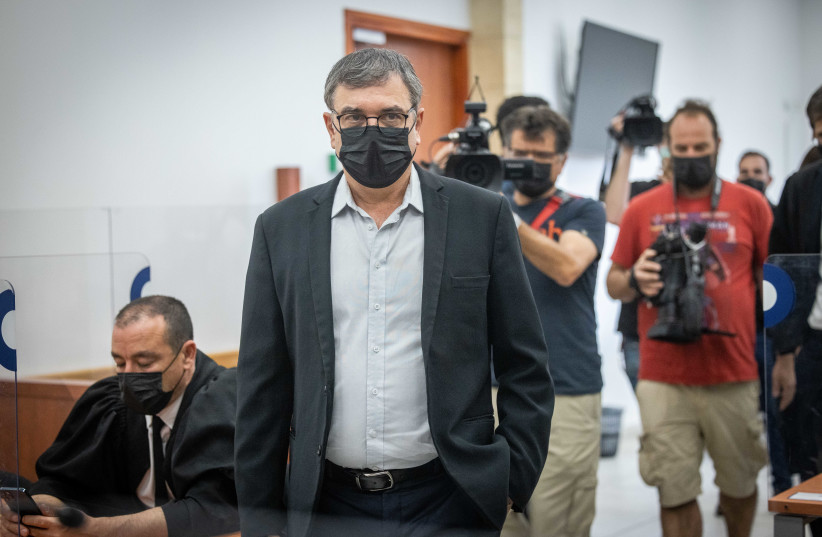Shlomo Filber, the former top aide to Benjamin Netanyahu turned state’s witness, gave evidence on Wednesday against the former prime minister in the Case 1000 illegal gifts affair that wrapped up his testimony in direct examination.
After finishing his seventh day of testimony before Jerusalem District Court, the court has given Filber permission to take a pre-planned Passover vacation (originally his testimony was due to finish a month earlier), after which he will be cross-examined by the defense.
Filber’s first six days of testimony were all related to the Case 4000 Bezeq-Walla media bribery affair.
Filber testified on Wednesday that in the summer of 2015, Netanyahu ordered him to assist the former prime minister’s close friend, Hollywood producer Arnon Milchan, advance his interests in investing in the Keshet TV channel.
More specifically, Filber said that Netanyahu had summoned him late at night as a middleman to help Milchan with regulatory issues relating to a potential merger between the “Reshet” and “Keshet” networks that would help Milchan.

Filber said he had met many times with Netanyahu, Milchan and other aides to the former prime minister to advise on the merger.
He said that Netanyahu – who was then serving as director-general of the Communications Ministry – had asked him for far more periodic reports on how things were going with Milchan than he did even in the Case 4000 case regarding Bezeq.
One central question was how and whether Milchan could facilitate a merger and best benefit from it when he already owned shares in Reshet at the time.
All of this help provided by Netanyahu to Milchan is viewed by the prosecution as abusing his power in a situation of an illegal conflict of interest because Milchan was passing valuable gifts to Netanyahu.
Netanyahu is accused of bribery in Case 4000, but only the less severe charge of breach of trust both in Case 1000 and Case 2000, the Yediot Ahronot-Yisrael Hayom Affair (in which Filber is not involved.)
Case 1000 alleges that between 2011 and 2016, Milchan gave Netanyahu cigars worth NIS267,254, champagne valued at NIS184,448 and jewelery to the tune of NIS10,900 for Sara Netanyahu.
Between 2014 and 2016, the prosecution also alleges that Netanyahu and his family received champagne and cigars to the value of NIS229,174 from Australian billionaire James Packer, an associate of Milchan.
However, the defense is expected to go on the offensive and will argue that if there was not enough quid pro quo on Netanyahu’s end for a bribery charge, why is there enough for a breach of trust charge? And moreover, Milchan has not been charged for giving the gifts to the Netanyahus.
In view of this discrepancy, the defense is expected to argue that charging the former prime minister and not his friend shows a double standard.
Although there has never been a full explanation why the state did not seek to charge Netanyahu with bribery in Case 1000 as it did in Case 4000, the merger that Milchan may have wanted fell through, while in Case 4000 the transactions involving Bezeq did come to fruition.
Filber also testified on Wednesday that he saw nothing wrong with Netanyahu asking him to advise Milchan about Israel’s regulatory laws, as he did not consider that he was being asked to do anything illegal.
In contrast, Filber has testified that his conduct on behalf of Netanyahu and Bezeq in Case 4000 was highly irregular, which the prosecution has said constituted bribery.
Filber’s testimony is only one of several pieces in the puzzle that the prosecution will bring to try to show that Netanyahu made numerous attempts to abuse his power to help Milchan, even if the sought-after merger did not happen, or did not result in financial benefit.
